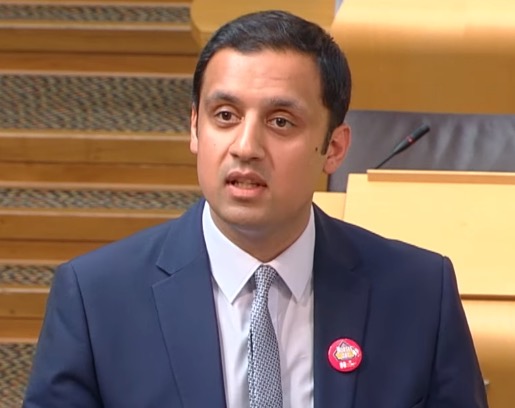Scottish Labour leader Anas Sarwar is facing growing calls to reject what has been described as a “cruel and discriminatory” two-tier disability system proposed by Keir Starmer’s Labour government.
The plan, which is expected to be voted on in Westminster this Tuesday, has triggered an outcry from disability campaigners, charities and political opponents who say the changes would unfairly penalise newly disabled people or those with diffuse conditions.
The SNP’s Westminster Leader, Stephen Flynn MP, has urged Mr Sarwar to “change the habit of a lifetime” and stand up to his party leader by instructing Scottish Labour MPs to vote against the bill.
The controversy centres around Labour’s proposed changes to disability and sickness benefits, which would mean new claimants receive less support than those already on the system even if their needs are exactly the same.
Campaigners say this creates an arbitrary divide and would cause hardship for young disabled people, newly injured individuals and families with disabled children.
Mikey Erhardt, of Disability Rights UK, warned the policy would create “a two-tiered system” that treats people differently based on timing, not need.
Disability advocate Lucy Webster added:
“Creating a two-tier benefits system where new claimants get less than existing ones is a political concession, but not a moral one.
“Not good enough.”
The SNP-led Scottish Government has already confirmed it will not adopt the policy north of the border.
Cabinet Secretary for Social Justice Shirley-Anne Somerville said:
“A two-tier system cannot be a fair system.
“That’s what disabled people would have told the Labour Government if they had actually asked them.”
She added that even Labour’s revised version of the plan fails to address deeper concerns, including a proposed rule that would deny support to thousands with complex or less-visible disabilities.
Stephen Flynn described Labour’s deal with backbenchers as “a last-minute agreement designed to save the skin of the Prime Minister,” rather than a considered or fair approach to welfare.
He warned that if the bill passes, people in similar situations could receive vastly different levels of support, simply depending on when their disability arose.
“In the next 48 hours Anas Sarwar has a choice,” Flynn said.
“He can ride to Keir Starmer’s rescue or choose to stand firm against this two-tier disability system.”
“This is a test of fairness and values.
“How can any MP vote for a system that says one disabled person is worth less than another, purely because of timing?”
He urged Scottish Labour MPs who previously rebelled against the plans to follow through and vote against the bill, joining the SNP in telling the Prime Minister to think again.
The vote on Tuesday will be closely watched not just by Parliament, but by disabled people across Scotland who are fighting for equality, dignity and respect.





